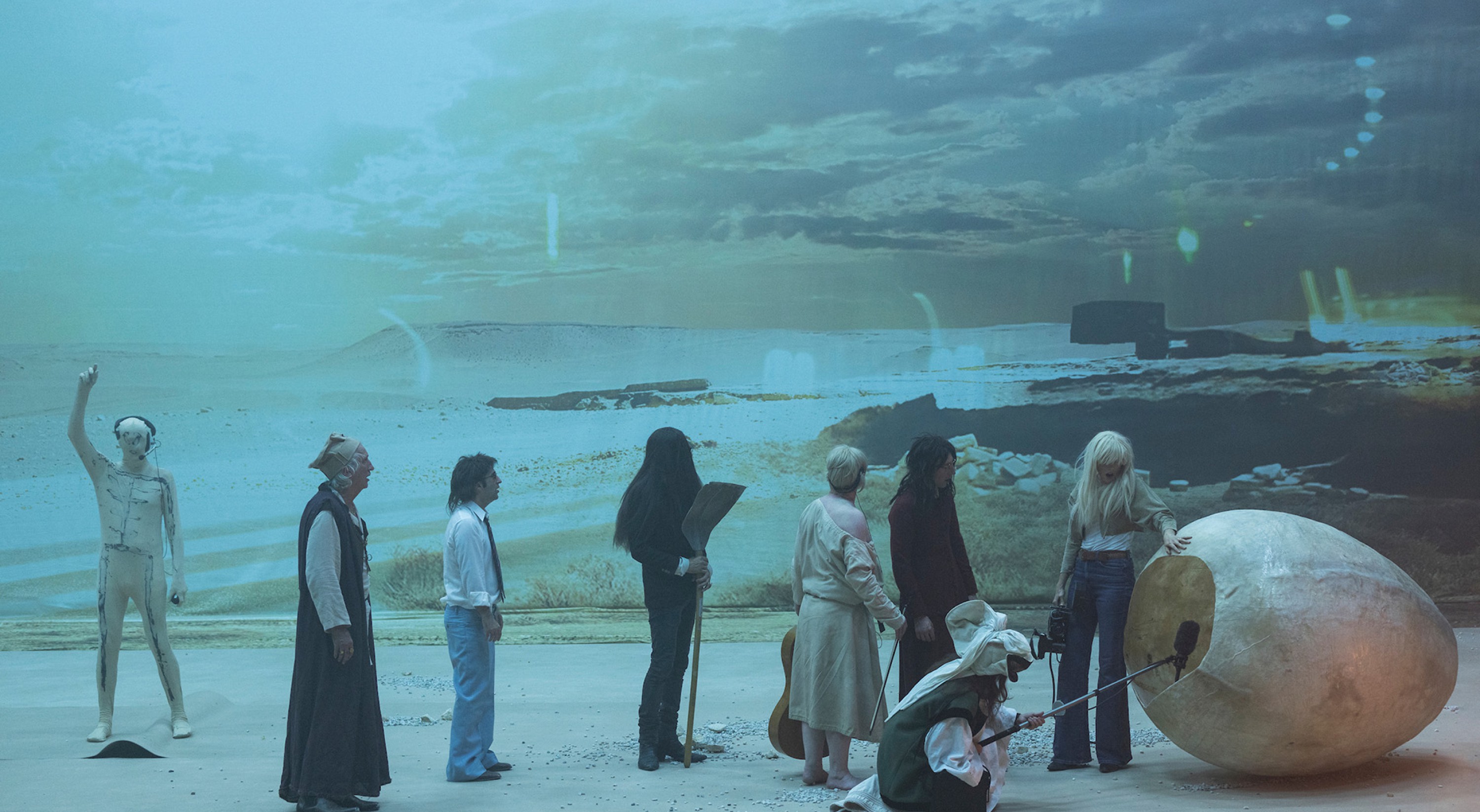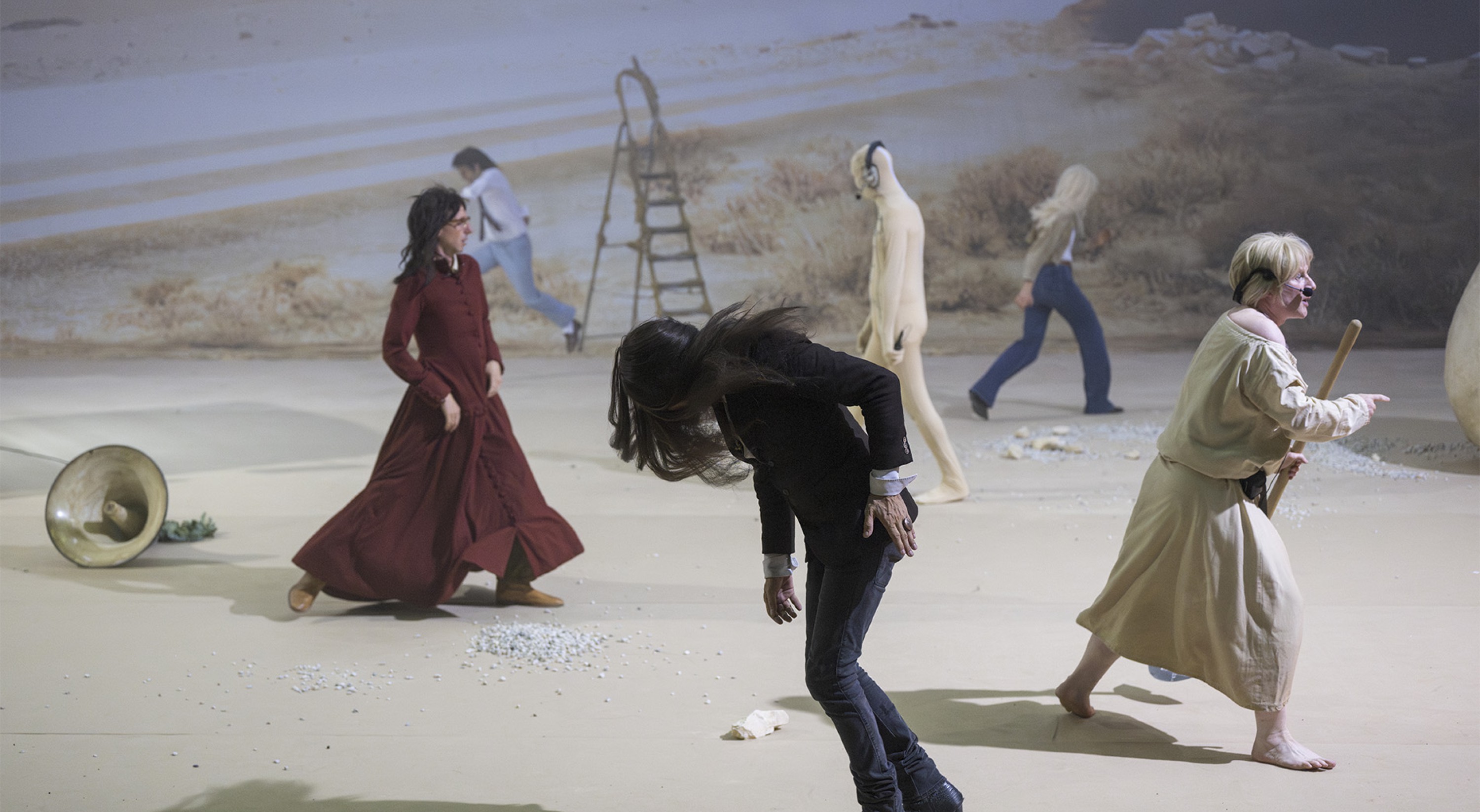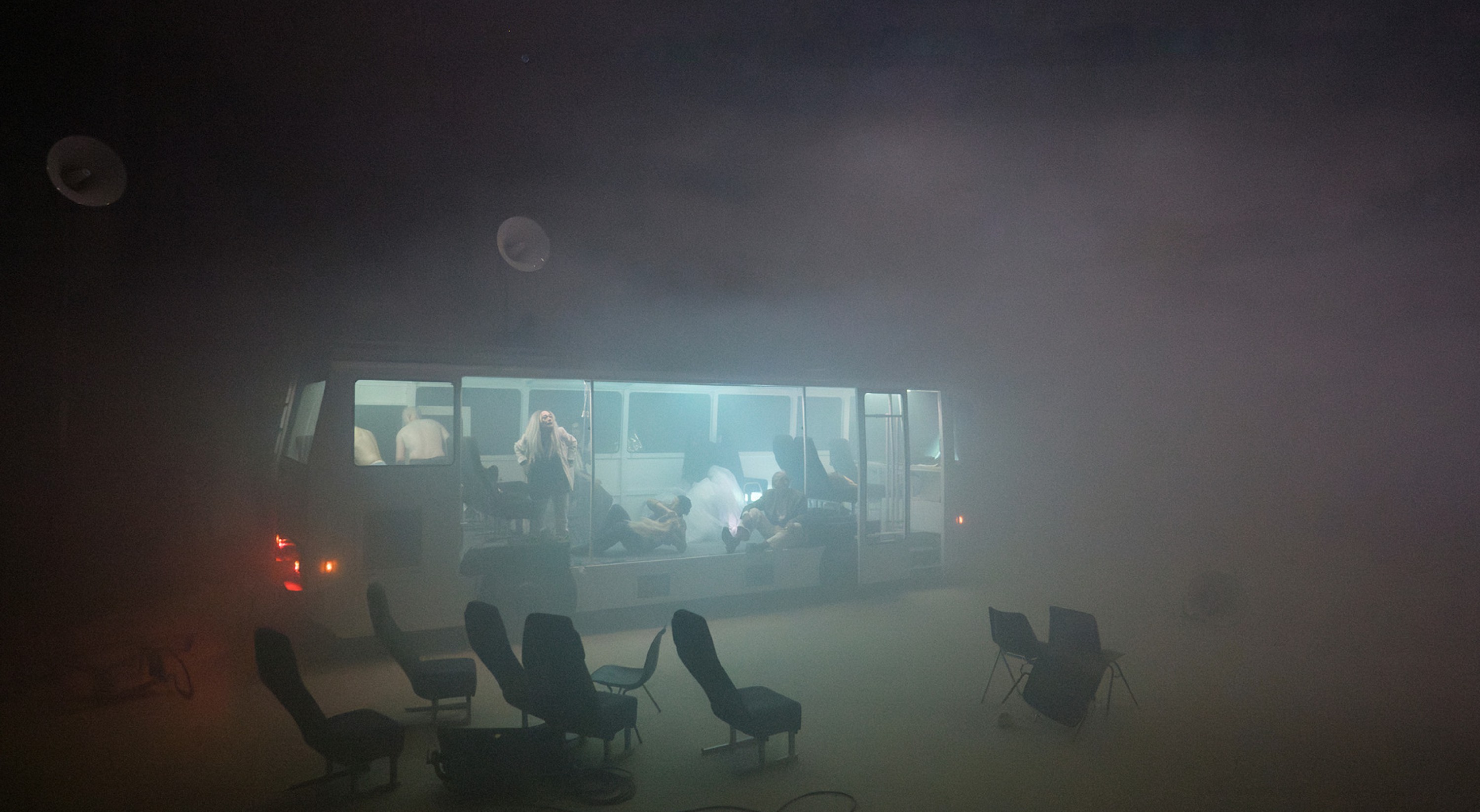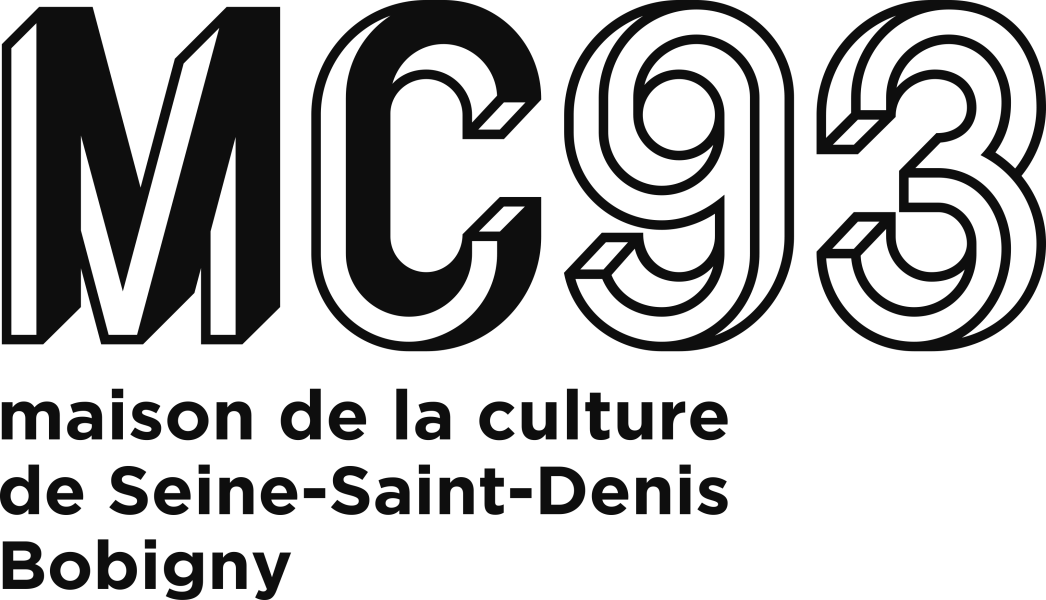Philippe Quesne
Le Jardin des délices
octoberoct 20 – 25
Conception, staging and scenography, Philippe Quesne
Original texts, Laura Vazquez
Other texts, to be announced
Performers, Jean-Charles Dumay, Léo Gobin, Sébastien Jacobs, Elina Löwensohn, Nuno Lucas, Isabelle Prim, Thierry Raynaud, Gaëtan Vourc'h
Collaboration on scenography, Élodie Dauguet
Costumes and sculptures, Karine Marques Ferreira
Dramaturg, Éric Vautrin
Assistant, François-Xavier Rouyer
Technical collaboration, Marc Chevillon
Sound, Janyves Coïc
Lighting, Jean-Baptiste Boutte
Props, Mathieu Dorsaz
Stage management, François Boulet, Martine Staerk
Stage technician, Ewan Guichard
Video technician, Matthias Schnyder
Lighting technician, Cassandre Colliard
Dressing, Estelle Boul
Set build, Ateliers du Théâtre Vidy-Lausanne
Production and booking, Judith Martin, Elizabeth
Production Vivarium Studio, Charlotte Kaminski
Produced by Vivarium studio; Théâtre Vidy-Lausanne
Coproduced by Festival d'Avignon; Ruhrtriennale; Athens Epidaurus Festival; Tangente St. Pölten, Festival für Gegenwart. Pölten, Festival für Gegenwartskultur; Théâtre du Nord Centre Dramatique National Lille Tourcoing Hauts-de-France; Maison de la Culture d'Amiens, Pôle européen de création et de production; Les 2 Scènes, Scène nationale de Besançon; Centro dramatico nacional (Madrid); MC93 - Maison de la Culture de Seine-Saint-Denis; Le Maillon, Théâtre de Strasbourg Scène européenne; Kampnagel (Hamburg); Festival NEXT; Scène nationale Carré-Colonnes Bordeaux-Métropole; Berliner Festspiele (Berlin); National Theater and Concert Hall Taipei (Taiwan)
The MC93 - Maison de la Culture de Seine-Saint-Denis and the Festival d'Automne à Paris are co-producing this performance.
At the frontier between medieval bestiary, ecological science-fiction and contemporary western, Le Jardin des délices is a retro-futuristic saga of worlds to come. Philippe Quesne's piece is a based loosely on Jérôme Bosch's famous trilogy, best known for its fantastical allegories that navigate a path between Hell and Paradise.
In this new piece, which marks the twenty years of existence of his company Vivarium Studio, Philippe Quesne puts together a multi-disciplinary team of performers and technicians, ready to undertake a journey in time bringing us up to the present day. Setting foot in a place that they seem to be discovering for the first time and which might be abandoned or part of a society which has ground to a halt, the protagonists organise it in their own way, borrowing whatever they find on the spot and in the venues' available memory, from theatre, each other and others. The enigmatic chimaera of the XVth century painter are a testimony to the radical overturning of traditional reference points, techniques and policies during an era in transition. In his own way, Philippe Quesne pursues his patient exploration of worlds on the fringes of our own, at a time when, yesterday as in today's world, fantasy and utopia disturb the relationship between nature and culture and formulate a playful response to the threats we currently face.
See also
In the same place



